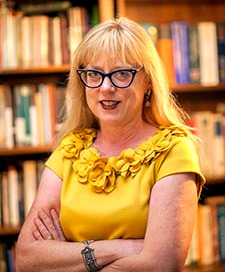Thomas Jay Oord, renowned theologian, philosopher and author, reflects upon the iconic verse John 3:16 and the meaning of God’s love for the whole of creation.
Christianity and Animals
Grace Yia-Hei Kao, Associate Professor of Ethics at Claremont School of Theology, discusses faith, ecofeminism and how both men and women can example Christian ideals of love, peace and justice in favour of animals.
In this transcript from the 2017 Creature Conference, Dr Margaret Adam, theologian, ethicist and visiting tutor at St Stephen’s House, Oxford argues that Christians should care about animals because of who and how they are called to be.
Dr Alma Massaro author, lecturer on animal ethics and member of the Italian Study Center for Christian Vegetarians (CSCV) speaks on whether animals have souls, challenging barriers to peaceable human-animal relationships and how to view animals through innocent eyes.
Revd Dr Trystan Owain Hughes explores the interrelatedness of all living beings and demonstrates how the common origin and essential unity of creation necessitates that every animal is treated with respect, compassion and love.
Professor Ryan McLaughlin, lecturer of theology at Siena College, New York, discusses the theological status of animals, the work of Christ and the practical implications of animal theological concern within the Christian life.
 Dr. Richard D, Ryder, Cambridge educated psychologist, philosopher and Scientific Adviser to Catholic Concern for Animals argues humanity suffers from an addiction to animal cruelty. Nonetheless, religious leaders are leading the way in bringing about lasting change.
Dr. Richard D, Ryder, Cambridge educated psychologist, philosopher and Scientific Adviser to Catholic Concern for Animals argues humanity suffers from an addiction to animal cruelty. Nonetheless, religious leaders are leading the way in bringing about lasting change.
 Professor Karen Swallow Prior, lecturer in English at Liberty University and Research Fellow with the Ethics and Religious Liberty Commission of the Southern Baptist Convention, argues compassionate care of animals is a scriptural mandate and that humanity needs to reclaim its Biblical responsibility to care for all God’s creatures.
Professor Karen Swallow Prior, lecturer in English at Liberty University and Research Fellow with the Ethics and Religious Liberty Commission of the Southern Baptist Convention, argues compassionate care of animals is a scriptural mandate and that humanity needs to reclaim its Biblical responsibility to care for all God’s creatures.

